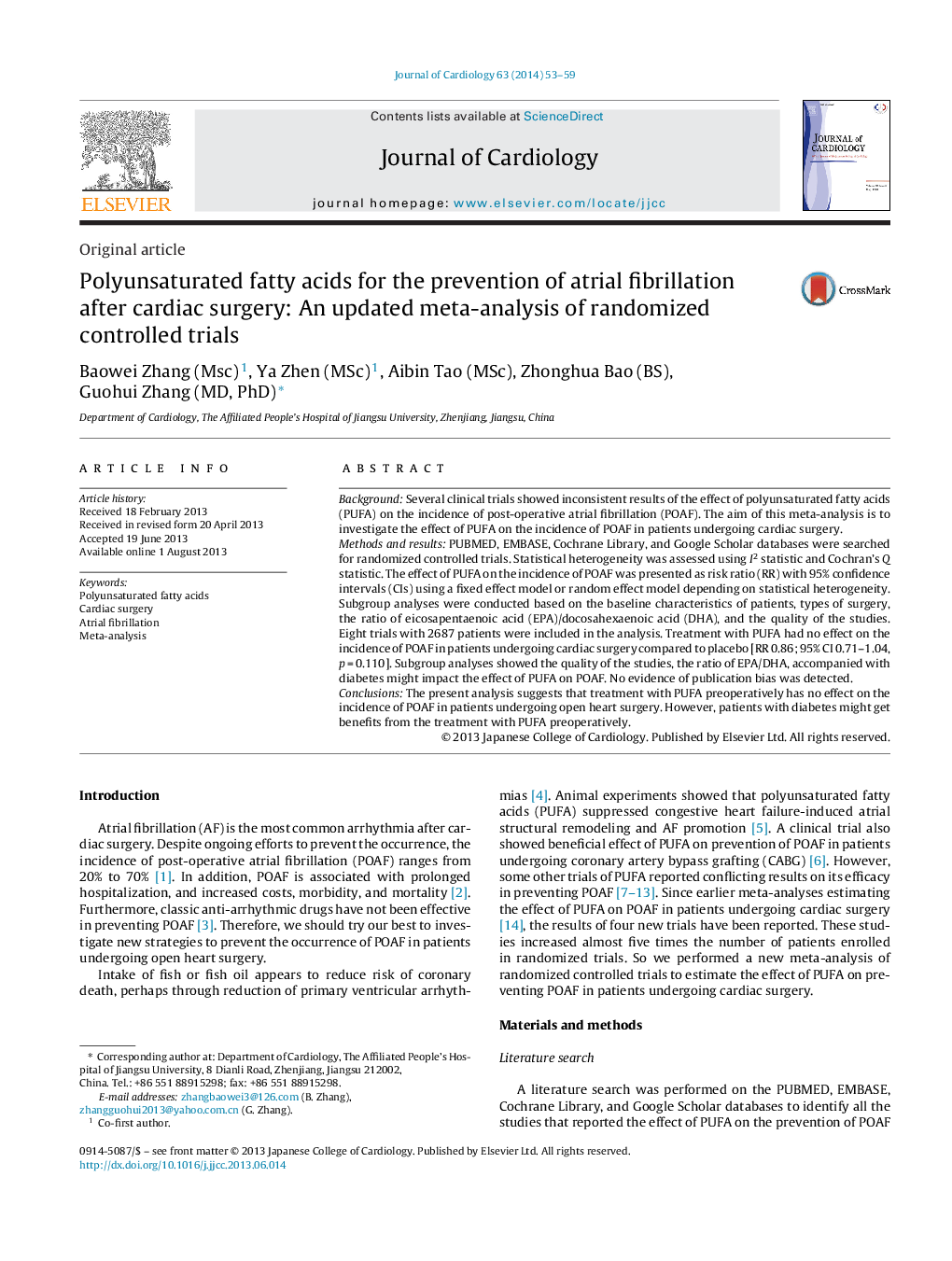| Article ID | Journal | Published Year | Pages | File Type |
|---|---|---|---|---|
| 5984295 | Journal of Cardiology | 2014 | 7 Pages |
BackgroundSeveral clinical trials showed inconsistent results of the effect of polyunsaturated fatty acids (PUFA) on the incidence of post-operative atrial fibrillation (POAF). The aim of this meta-analysis is to investigate the effect of PUFA on the incidence of POAF in patients undergoing cardiac surgery.Methods and resultsPUBMED, EMBASE, Cochrane Library, and Google Scholar databases were searched for randomized controlled trials. Statistical heterogeneity was assessed using I2 statistic and Cochran's Q statistic. The effect of PUFA on the incidence of POAF was presented as risk ratio (RR) with 95% confidence intervals (CIs) using a fixed effect model or random effect model depending on statistical heterogeneity. Subgroup analyses were conducted based on the baseline characteristics of patients, types of surgery, the ratio of eicosapentaenoic acid (EPA)/docosahexaenoic acid (DHA), and the quality of the studies. Eight trials with 2687 patients were included in the analysis. Treatment with PUFA had no effect on the incidence of POAF in patients undergoing cardiac surgery compared to placebo [RR 0.86; 95% CI 0.71-1.04, p = 0.110]. Subgroup analyses showed the quality of the studies, the ratio of EPA/DHA, accompanied with diabetes might impact the effect of PUFA on POAF. No evidence of publication bias was detected.ConclusionsThe present analysis suggests that treatment with PUFA preoperatively has no effect on the incidence of POAF in patients undergoing open heart surgery. However, patients with diabetes might get benefits from the treatment with PUFA preoperatively.
